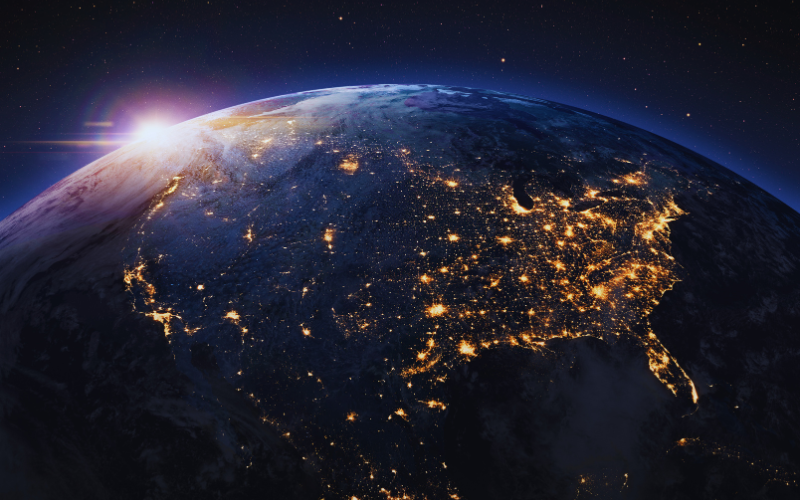In 2020, a dangerous pathogen swept the globe. The pandemic required government action, we were told, but the government of one nation was not enough. Even powerful governments (like that of the United States) worked with other governments to keep pandemic measures from being futile.
In order to avoid a fatal lack of coordination, some argued (and still do), we needed a global government—a governing body with supreme power over all the nations of the earth. Presumably, a supranational governing body would have eliminated incompetence and formed a united front against the pathogen. It was better, then, to surrender to a supranational body’s experts than to hope that individual leaders would follow the health protocols.
This sort of narrative was—and is—a recurring theme in the COVID-19 crisis. With respect to popular culture, we should not forget the “One World: Together at Home” concert, hosted by Lady Gaga and other notable celebrities to raise funds for the World Health Organization (WHO)—some $127.9 million were raised and dispersed. The message of the concert? Promoting global citizenship.
A similar idea is spreading in the cultural and intellectual domain. Klaus Schwab, the face of the World Economic Forum (WEF), emerged during the pandemic as the greatest cheerleader for the so-called Great Reset. The Great Reset would require a coordination of all governments to achieve “stakeholder capitalism”—a plan which, at surface level, sounds like a benign way to channel free market energies through government regulation for the wellbeing of all stakeholders (including ordinary people and the environment).
But, in fact, the opposite is true: An economy so tightly regulated by the government, with the intent of ensuring benefit for all stakeholders, is just a nice way of describing socialism.
Indeed, the WHO is currently working on a global pandemic treaty that would give it, in a future pandemic, regulatory powers to punish nations for disobeying its dictates. Under this treaty, if the WHO mandated a six-foot distancing rule or sought to vaccinate the entire planet, it could impose those dictates by withholding government funding or other enforcement measures.
On some level, the propaganda for the World State is enchanting. Wouldn’t a global government avoid the messiness of trying to coordinate individual governments?
Still, we must never willingly surrender to the quest for a global government. Here’s why.
The great American political philosopher, John Rawls, favored cooperative arrangements between peoples (e.g., treaties or trade agreements) rather than a world state. A world state, exercising power as the central government of the entire global population, would result in one of two horrific outcomes.
On the one hand, Rawls said, the world state would become a global tyranny of intense brutality, because, as the governor of all, it would be accountable to none. In fact, there would be no way for segments of the population to hold the global government accountable (much like how populations subject to the European Union now have little hope of legal representation in Brussels). Imagine trying, as an individual citizen, to put pressure on the WHO, a distant governing body that oversees the entire world. It would be impossible.
The alternative global government scenario would be global anarchy, constant strife, and civil war. The management of all people would be too much, and society would degenerate into chaos. Global government, then, would evolve into either a soulless despotism (with no concern for citizens on the local level) or into anarchy.
Beyond this, global government is starkly contrary to the American principle of subsidiarity, which requires that we solve problems of public policy at the most local level possible. Higher levels of government must intervene only when necessary. If we have a global government that swallows up all local governments, we will have to deal with blanket, one-dimensional solutions to complex problems.
These higher levels of government, moreover, tend to have their own agenda, distinct from people at the local level, since the people at higher levels do not live in the areas for which they make decisions.
While cheerleaders for global government use idealistic and nice-sounding language, their goal is to transfer power upward—toward faceless bureaucracies and away from the ordinary man and his neighbors.
—
Image credit: Canva


















